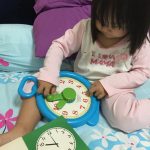Joseph Isaac Schooling, 21, has just won Singapore’s first Olympic Gold. Not only did he win an Olympic gold medal, he made an Olympic Record for the 100m Men’s Butterfly.
How did Joseph achieve this feat? What inspired him? What made him tick?
As a parent, I wanted to know what kind of support his parents gave him. I also wanted to know the “ingredients” needed to raise a champion.
I was curious and this was what I found.
1) Have Strong Parental Support
Whenever I see successful youths, I know they have a strong support system behind them. Typically, that support comes from their parent(s). Parental support comes in various ways. In Joseph’s case, I see 3 kinds of support.
a) Encouraging His Passion
May Schooling, Joseph’s mom, has said that the passion for swimming comes from Joseph. Neither she nor Colin, Joseph’s dad, forced it on him. Instead of suppressing his love for swimming so he could spend more time studying and taking the traditional path to success, they did everything in their power to ensure he can pursue his passion, including sending him to the US when he was 14 so he could receive the best training.
[Edit (12 Aug) After I published this post, I read an interview given by Colin in Today. In that interview, Colin mentioned that he and his wife had collected an extensive swim library comprising of handwritten notes of Joseph’s swims, including details like split times and cadence. They also learned as much as they could about competitive swimming through attending technical courses and swim clinics. Although swimming was Joseph’s passion, his parents did all they could to learn about it so they could provide more indepth motivation and advice to him. It is easy to see then how much support his parents have given him to pursue his passion and how they have helped motivate him for success.]
b) Helping Him Clear Obstacles
When Joseph was 15, May sought and received deferment from National Service (NS) so that he could spend his time training for his competitions. Yet, Joseph’s parents have no intention of letting him skip his obligations to his country. They still expect him to return to fulfill his NS duties. Even as they support his passion, they are mindful to instill in him the value of loyalty towards his country.
c) Unshakeable Faith In Him
Not only did Joseph’s parents provide support and help him clear obstacles, they had an unshakeable belief in his ability. In a 2013 interview, May confidently said that Joseph will be a finalist in 2016. That faith, I believe, would have boosted Joseph’s confidence, leading to his can-do attitude.
[Edit (12 Aug) In the same interview mentioned in my edit above, Colin Schooling hit the nail on the head.
“For parents, whatever your children do, just have confidence in them, and just love them.” – Colin Schooling]
Lesson for me:
Respect and honour my children’s passions. Do everything in my power to help them fan and develop those passions. Even if it is the path less trodden, have faith that my children will achieve success because it is self-driven. And especially if it is the less trodden path, my children will need even more support and encouragement from my husband and me. Move mountains for them if necessary, but keep them grounded. And more importantly, have faith in them and let them know and feel it too.
2) Find A Role Model
When Joseph was 6, he learned that his granduncle Lloyd Valberg was Singapore’s first-ever Olympian at the 1948 Olympics. From that point on, Joseph aspired to not only be an Olympian, but to also win an Olympic medal.
When he was 13 years old, he took a photo of himself with Michael Phleps, his idol. 8 years later, he competed against his idol and won.
Lesson for me:
Everyone needs a role model to look up to and aspire towards. Likewise, my children need role models in what they do. Their role models will inspire them in ways I cannot. Yet, at the same time, my husband and I are their role models in the values and mindsets we want them to have. Hence, we need to be mindful of what we say and do.
3) Bounce Back From Failures
While attempting to qualify for 200m Butterfly for Olympics 2012, Joseph had to scramble minutes before his heats to find a replacement swim cap and goggles. That distraction caused him to register a poor swim and he did not qualify for the finals at the Olympics. While understandably disappointed, Joseph had said it was a learning experience. He took heart that he was still very young and had a long way to go. In 2016, he came back fighting harder, ending with a gold medal in Rio.
Joseph has exhibited the mindset of a champion. He looks at things positively. He is engaged in the positive thinking cycle.
Lesson for me:
Failures do not define us. Instead we can choose to learn from them (again that is engaging in the positive thinking cycle). In helping my children overcome their perceived “failures”, I will be mindful not to harp on what they have done wrong previously but will consciously remind them what they can do right.
4) Create a Goal
During an interview with Straits Times in Aug 2015, Joseph had said that his strategy for Olympics 2016 was to focus on 100m Butterfly and 200m Butterfly because he sees himself as a world-class swimmer trying to win. He was intent on winning the 100m Butterfly.
Joseph had a very clear goal. He was going to compete in Rio 2016 and that he was going to win a medal. In fact, while in Rio, he withdrew from the 200m Butterfly and missed out on the 100m Freestyle. I presume he did so to conserve all his energy for the 100m Butterfly.
Lesson for me:
Goals tell us where to go and what to focus on. If we do not know where we want to go, our chances of getting there is very low. Hence, I need to help my children create their OWN goals, goals that they feel passionate about, goals that will inspire them.
5) Persevere
Joseph had said that swimming was all about the little things. To achieve his ultimate goal of winning an Olympic medal, he would have to take all those little steps. Even if the trainings were painful, he had to persevere.
He took those little steps towards his goal. And he reached his goal today.
Lesson for me:
No action is too small as long as it propels us towards our goal. Taking a tiny little step forward is better than not taking any at all. That is something I have always believed in and it is reassuring to know Joseph subscribes to that as well. I will continue to remind my children of the tiny steps they can take each day towards their success.
6) Visualise Success
When interviewed by Channel News Asia right after winning his Gold medal, Joseph had said he did not know what to believe, whether he actually did it, or if he was still preparing his race.
That goes to show that like all successful people, Joseph engages in visualisation. He had most likely visualised himself winning the race many times prior to the event. His visualisations were so clear and real that even after the race, he could not tell the difference between his visualisations and reality.
Lesson for me:
Visualisations work. The clearer and more real we can visualise our successes, the easier it will be for us to achieve them. This is a tool I will be using to help my children visualise their success.
7) Being Humble
Why are all of us going wild about Joseph Schooling? For me, it is not just because he has won our first Olympic Gold. Neither is it because he has made an Olympic Record. Instead, it is because I am thoroughly impressed by his humility. And it is the humility in this champion that has made me his fan.
Despite winning against giants like Michael Phelps, Chad le Clos and Laszlo Cseh, he did not brag. Instead he had said he was “honoured and privileged” to be able to race in an Olympic final alongside great names like Michael, Chad and Laszlo. Wow!
Lesson for me:
While success can be a magnet for fans, humility in the face of success is even more magnetic. That is something I will need to bear in mind as I guide my children to pursue their own success.
Conclusion
Joseph Schooling has been an inspiration not only to athletes in Singapore but to me as well. He is now my role model on how I would like my children to behave in pursuit of their dreams, and more importantly, how I would like them to behave when they have achieved success.
Congratulations, Joseph. I look forward to seeing more of you in the future. Thank you for being such an inspiration for the budding athletes in Singapore. And thank you, for being an inspiration for this mom here. I wish you every success and may you continue to inspire all of us.
– Vivian Kwek-







